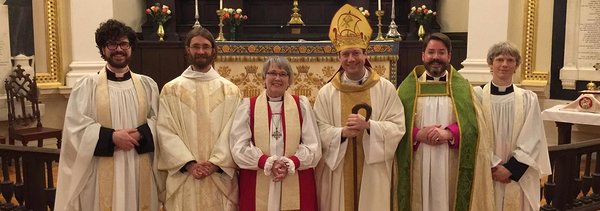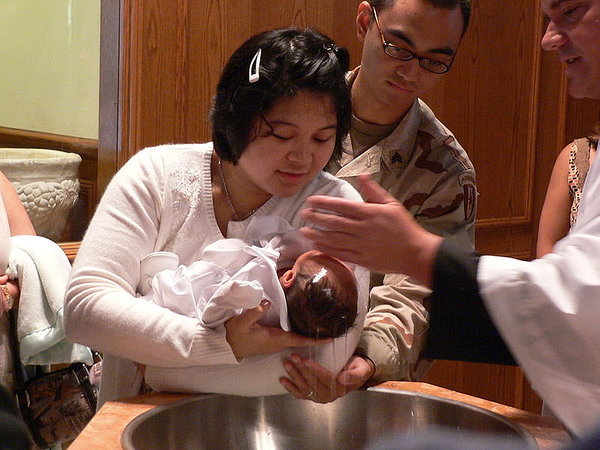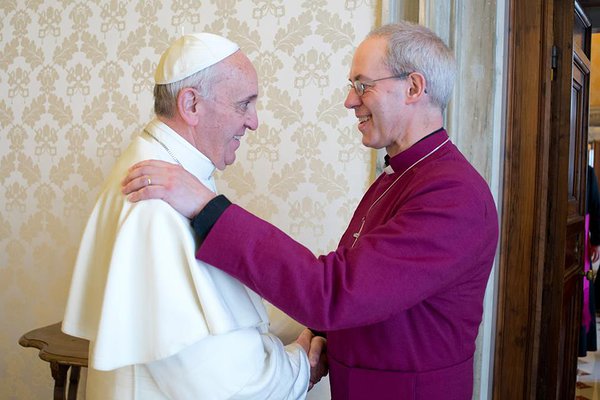What it means to be an Anglican Christian
Anglicans are followers of Jesus Christ who see to proclaim in word and deed the good news of God’s kingdom in and for the world.
Inspired by the witness of the scriptures and the early church, and informed by our God-given reason and human experience, we seek to shape our lives, as individuals and as a church, according to the example of Jesus Christ, for the sake of the world God loves.
Anglican Christians form part of the one,
holy, catholic, and apostolic Church, organized into 38 self-governing national
and regional churches that make up the Anglican Communion.
The Anglican Church of
Canada is a full and active member of this worldwide family of
churches.
“Anglican essentials”
There are some basic tenets of being an
Anglican. One might call them “Anglican essentials”:
- We view the Old and New Testaments “as containing all things necessary for salvation” and being the rule and ultimate standard of faith.
- We understand the Apostles’ Creed as the baptismal symbol, and the Nicene Creed as the sufficient statement of the Christian faith.
- The two sacraments ordained by Christ himself—baptism and eucharist—are administered with the unfailing use of Christ’s words of institution, and the elements ordained by him, that is bread and wine.
- The historic episcopate is locally adapted in the methods of its administration to the varying needs of the nations and peoples called of God into the unity of his Church.
Following the teachings and example of
Jesus Christ, we are committed to the proclamation of the gospel to the whole
creation, and in being co-workers with God in revealing God’s just kingdom here
and now.
Ancient roots, English origins, globally inculturated
As Anglicans we trace our Christian roots back to the early church, and our specifically Anglican identity to the post-Reformation expansion of the Church of England.
Historically, there were two main stages in the development and spread of Anglican Christianity. Beginning with the seventeenth century, Anglicanism was established alongside colonization in Canada, the United States, Australia, New Zealand, and South Africa. The second stage began in the eighteenth century, when missionaries worked to establish Anglican churches in Asia, Africa and Latin America.
As a worldwide family of churches, the Anglican
Communion has more than 80 million adherents in more than 165 countries. Present
on every continent, Anglicans speak many languages and come from different
races and cultures. For example, approximately 3.5 million Anglicans worldwide
are francophone. Although these national and regional churches are autonomous,
they are also uniquely unified through their history, their theology, their
worship, and their relationship to the ancient See of Canterbury.
A sacramental church
Through baptism in the name of the Father, Son, and Holy Spirit, a person is made one with Christ and received into the fellowship of the church. In the Anglican tradition this sacrament of Christian initiation is open to children as well as to adults.
Central to worship for Anglicans is the celebration of the holy eucharist, also called holy communion, the Lord’s supper or the mass. In this offering of prayer and praise, the life, death, and resurrection of Jesus Christ are recalled through the proclamation of the word and the celebration of the sacrament. Thus nourished, we are sent into the world to serve God by serving others. Other important rites, commonly called sacraments, include confirmation, holy orders, reconciliation, marriage and anointing of the sick.
Worship is at the very heart of
Anglicanism. Its styles vary from simple to elaborate, or even a combination.
Until the late twentieth century, the great uniting text was the Book
of Common Prayer, in its various revisions throughout the Anglican
Communion. Today, modern-language liturgies, such as the Canadian
church’s Book of Alternative Services, now exist alongside the
traditional language liturgies, and still bear a family likeness. Both
the Book of Common Prayer and the more recent Anglican
liturgies give expression to the comprehensiveness found within the Church.
This approach reflects the cherished Anglican principle of seeking the via
media (literally, “the middle way”) in matters not considered
essential to the Christian faith.
Living in communion
Another distinguishing feature of the corporate nature of Anglicanism is that it is an interdependent church, where parishes, dioceses, and provinces in communion with each other help each other to live out their missions by mutual support in terms of financial assistance and the sharing of other resources.
Anglicans consider themselves members of the one, holy, catholic, and apostolic Church, and recognize that Christians of other traditions also legitimately have this same self-understanding. For this reason, to be Anglican is to be ecumenical. Anglicans are involved in ongoing efforts—local, national, and international—to confront the scandal of Christian division and to make visible the unity of the universal Church of Christ. This happens through common prayer, theological dialogue, and joint mission.
To be an Anglican is to be on a journey of
faith to God, supported by a community of fellow believers, who are dedicated
to finding God through common prayer and loving service.




